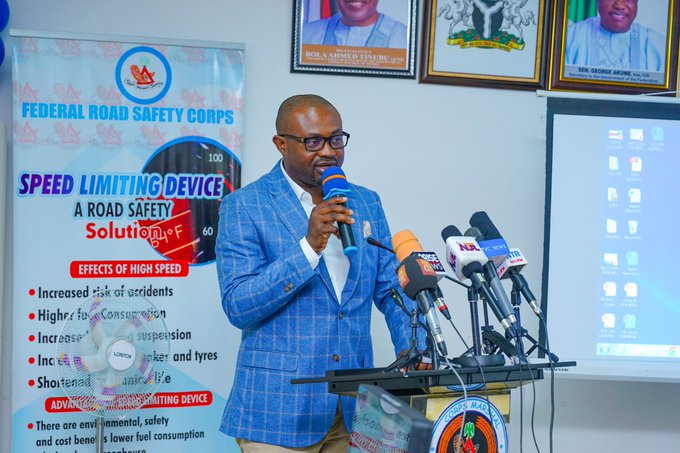The Minister of Interior, Olubunmi Tunji-Ojo, announced that 10 individuals on INTERPOL’s watch list were arrested while attempting to enter the country.
He made this known on Tuesday during the inauguration of the Nigeria Immigration Service (NIS) Technology Innovation Complex in Abuja.
“In the last couple of days, 10 people who were on the INTERPOL and immigration wanted list were apprehended in one week,” Tunji-Ojo said.
He added that before now, such individuals could have entered the country undetected.
“But we have now told them that under the new leadership, Nigeria is a no-go area for any criminal element,” the minister declared.
President Bola Tinubu officially opened the state-of-the-art facility, marking a significant step in Nigeria’s border security and immigration technology.
The complex includes a command and control center for monitoring migration, a data center, an ECOWAS biometric card production center, and a solar power plant.
According to Tunji-Ojo, the facility is designed to detect high-risk individuals, irregular migration patterns, and monitor Nigeria’s vast and often unmanned borders.
The minister emphasized that the solar power plant, which provides energy for the complex, would save Nigeria millions annually.
“This 0.5KW solar power plant is 100 percent ready here,” he said.
He explained that the solar station would cut operational costs and save the country over N300 million annually.
Tunji-Ojo highlighted the importance of combining technology with trained personnel to ensure the facility runs efficiently.
“You can build a structure, but how about the human element?” he asked.
He revealed that 250 officers had been trained to operate the facility round the clock.
“We run shifts of eight hours, three times a day, ensuring 24/7 surveillance,” he said.
Before the introduction of this advanced system, Nigeria faced significant challenges at its borders.
Tunji-Ojo said the country was losing billions annually due to inefficiencies in border management.
The new complex is expected to change that.
For the first time, Nigeria has automated visa processes with approvals guaranteed within 48 hours.
The facility also strengthens border governance, covering over 200 border points across the nation.
“We now have an ECOWAS travel document to facilitate easy movement and travel,” the minister added.
This move aligns with the government’s goal to promote regional integration while ensuring security.
The inauguration also reflects President Tinubu’s commitment to leveraging technology for national development.
Tunji-Ojo reiterated his dedication to improving service delivery for Nigerians.
“Under this leadership, we are fully in charge of border governance,” he said.
He further assured Nigerians that the government is focused on creating a safer environment for citizens and visitors.
With these advancements, Nigeria is sending a strong message to the global community.
The country is no longer a haven for criminals or irregular migrants.
As Tunji-Ojo said, “Nigeria was wasting billions every year, but with this state-of-the-art technology, the country will save over N300 million annually.”

